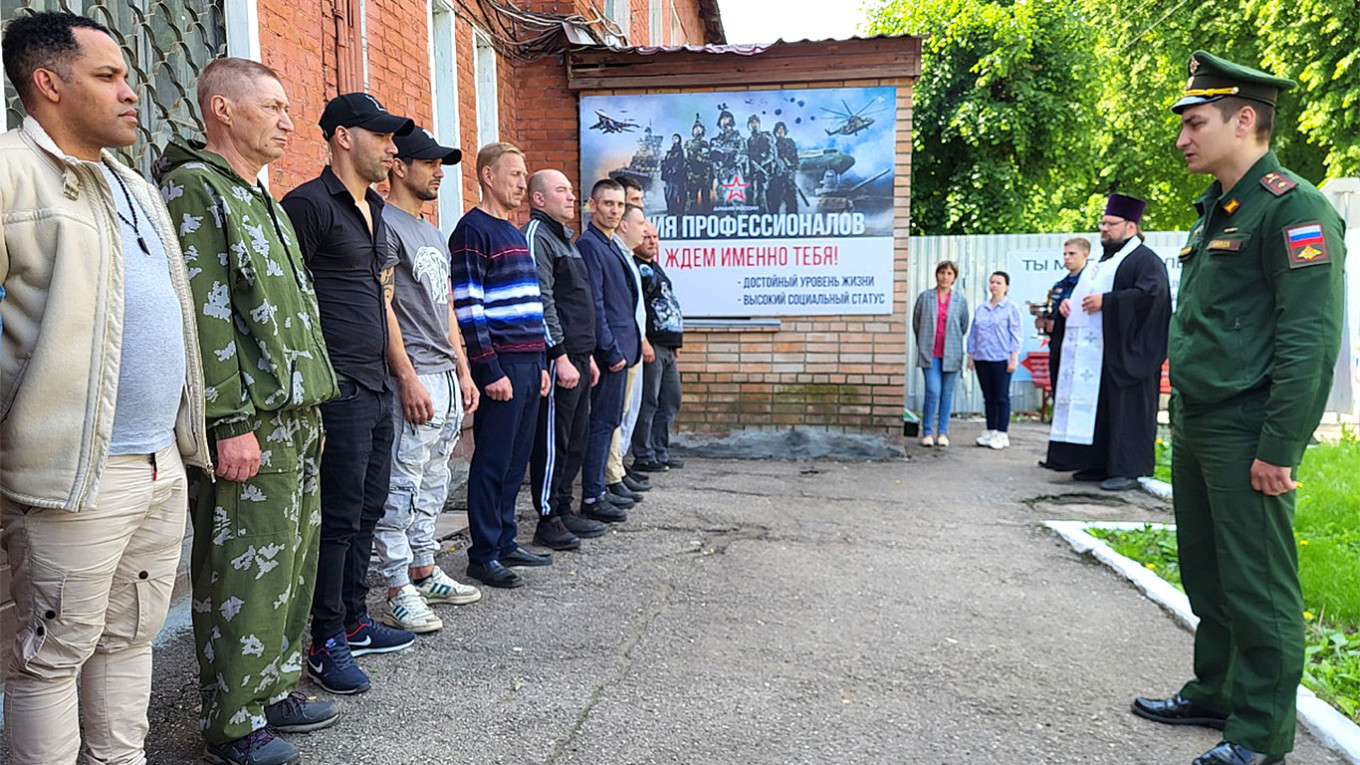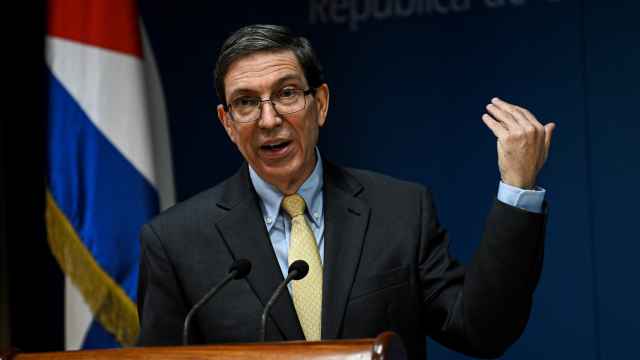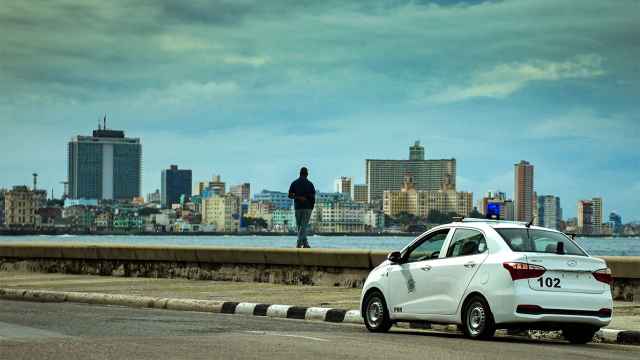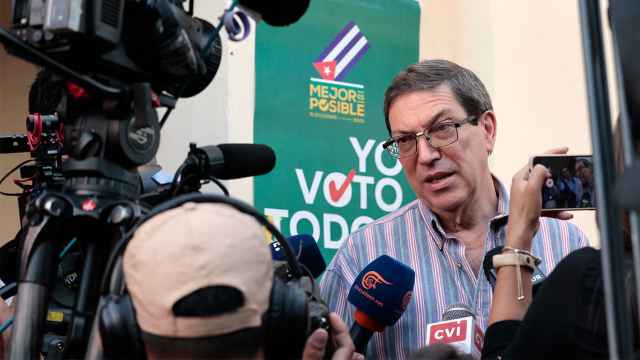Russia-based recruiters are targeting Cuban nationals online for the war in Ukraine, promising them lucrative military contracts, help with relocating to Russia and even citizenship for them and their families, according to an investigation by The Moscow Times’ Russian service.
In a rare accusation against longtime ally Moscow, Cuban authorities announced Tuesday that they had identified an alleged human trafficking ring aimed at recruiting its citizens to fight for Russia in Ukraine.
The Moscow Times’ Russian service found several social media groups in which Cuban men are recruited to fight in Ukraine.
In one Facebook group called Cubanos en Moscú (Cubans of Moscow), the majority of posts advertising military contract service in Russia were created by a woman named Elena Shuvalova.
Shuvalova writes that Cuban citizens can sign one-year contracts with the Russian army, offering a monthly income of 204,000 rubles ($2,090). A recruit can also receive Russian citizenship for himself and his family.
The posts note that even someone with an expired or missing passport can sign up — they just need to provide a photo and immigration letter.
Shuvalova confirmed in a conversation with The Moscow Times that she can help foreigners in Russia, including undocumented immigrants, sign a contract with the military.
“If you don’t have a passport, but you have a photo, then that’s already good. But even if you don’t have a photo, we can sign [a contract],” she said.
Shuvalova, who speaks Spanish, added that she has already facilitated several Cubans’ journeys to the front in Ukraine.
“[Contractors] earn an income, and a rather good one at that. Everyone wants to immediately rent a luxury apartment. But if necessary, in the first couple of weeks before the paycheck comes in, we can help move the family in somewhere and feed them.”
Shuvalova said that helps prospective recruits for free. When asked whether she works for the Russian Defense Ministry, she declined to answer.
One member of the Cubanos en Moscú Facebook group, who posted photos of himself dressed in Russian military fatigues, said that Shuvalova was his point of contact in joining up to fight in Ukraine.
“Daily payments without commission, [and] the company takes care of the visa issues,” he wrote.
Shuvalova also shares recruitment advertisements for foreigners on the popular Russian social media website VKontakte.
In her profile on that website, photos accompanied by the pro-war Z symbol suggest that she is a supporter of Moscow’s invasion of Ukraine. Likewise, a number of groups that she is subscribed to indicate that she lives in central Russia’s Ryazan region.
In May, a local news outlet in the Ryazan region published photos of several Cubans who went to fight in Ukraine. The men expressed hope of receiving Russian citizenship.
Two Cuban men who spoke on condition of anonymity told The Moscow Times they were looking to serve in the Russian military, but were still waiting on a response from army recruiters.
“I know that they pay very well, and it’s a great way to make a lot of money quickly,” one of the men said.
“They pay a lot, and I need the money. I’ll probably later stay in Russia,” added the other.
A Spanish translator who works closely with Russia’s Cuban diaspora confirmed that the military had been recruiting men from Cuba.
“A lot of young guys come straight from Cuba to earn money here. They’re not local Cubans. They don’t stay in Moscow — they sign contracts right away and then go off to fight,” the translator said.
“And then they disappear. Their relatives try to find them through the Cuban diaspora or social media. But we don’t have anything to do with this. Most likely, they’ve been killed.”
Cuba is among a small group of countries that have maintained close ties with Russia following the February 2022 invasion of Ukraine.
In fall 2022, President Vladimir Putin signed an order lowering the minimum length of contract military service for foreigners from five years to just one year. At the same time, foreigners who signed a contract with the Defense Ministry were offered fast-track citizenship.
According to British intelligence, Russian authorities have recently doubled efforts to recruit citizens of neighboring countries to fight in Ukraine.
Analysts said that online ads appeared in Armenia and Kazakhstan with an offer to enter contract service in the Russian army at the end of June. So-called “volunteers” were promised a one-time payment of 495,000 rubles ($5,050) and a monthly salary of 190,000 rubles ($1,940).
A senior officer in the Russian military who spoke on condition of anonymity told The Moscow Times’ Russian service that he was shocked by the number of internationally recruited battalions fighting in Ukraine.
“There were Cubans, there were Serbs. They speak Russian poorly, and that’s not the only issue. It’s unclear how to work with them,” the officer said.
“And they’re not [from] some kind of private military companies. They’re all contracted with the Defense Ministry,” he added.
Experts have cast doubt on the role that foreign fighters play in the Russian army, however.
According to Russian military expert Pavel Luzin, authorities reduced the minimum contract term to a year with the expectation that it would attract significantly more foreign citizens to serve in the Russian army — but little changed in reality.
"[There are definitely] not tens of thousands [of foreign military personnel]," Luzin said.
A Message from The Moscow Times:
Dear readers,
We are facing unprecedented challenges. Russia's Prosecutor General's Office has designated The Moscow Times as an "undesirable" organization, criminalizing our work and putting our staff at risk of prosecution. This follows our earlier unjust labeling as a "foreign agent."
These actions are direct attempts to silence independent journalism in Russia. The authorities claim our work "discredits the decisions of the Russian leadership." We see things differently: we strive to provide accurate, unbiased reporting on Russia.
We, the journalists of The Moscow Times, refuse to be silenced. But to continue our work, we need your help.
Your support, no matter how small, makes a world of difference. If you can, please support us monthly starting from just $2. It's quick to set up, and every contribution makes a significant impact.
By supporting The Moscow Times, you're defending open, independent journalism in the face of repression. Thank you for standing with us.
Remind me later.






